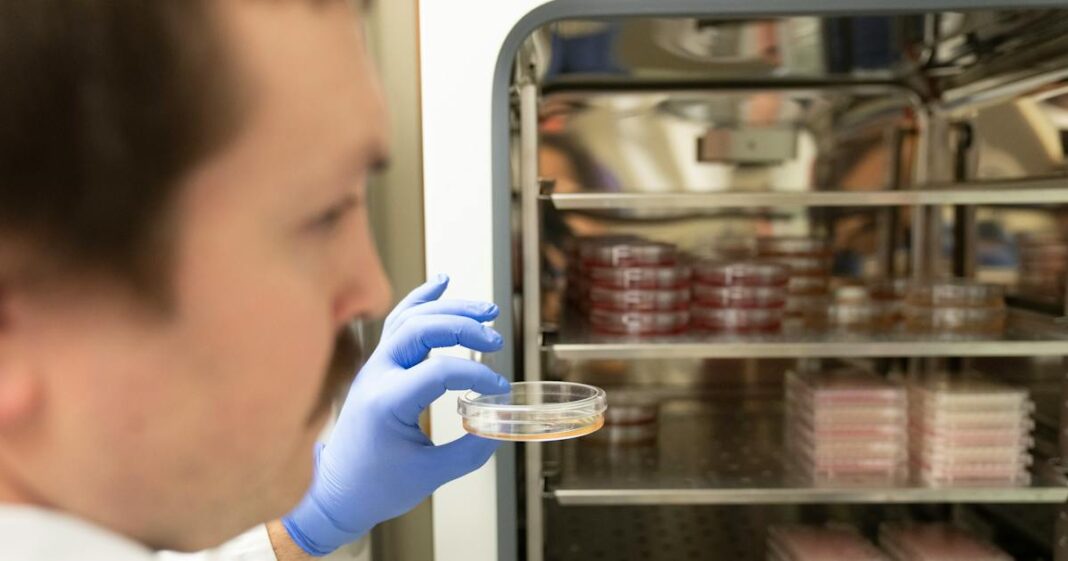DULUTH — A new startup company based in University of Minnesota Duluth labs has joined the expensive and complex world of drug creation, aiming to bring potential cancer-fighting treatments from the design stage to preclinical trials. Pharmaceutical sciences professor Venkatram Mereddy and several of his graduate students have worked for years to develop therapeutics for pancreatic and triple-negative breast cancer, publishing academic papers and applying for grants to support their research. But in 2023, Mereddy expanded efforts to commercialize drug candidates, seeking investors and entering an agreement with the University of Minnesota to establish the startup and apply for patents.
The company, Rebase BioTech, has raised $1. 2 million. The U has launched nearly 250 startups since its Venture Center, which takes ideas and technology from U research and prepares them for the market, opened in 2006.
Nine have been from UMD, and of those, about half from UMD’s Natural Resources Research Institute. The journey of a drug from design to approval comes with high failure rates and can take at least 10-15 years and cost anywhere from $1 billion to $2 billion. So, it’s more cost-effective to begin at the university level, Mereddy said.
“My students are uniquely trained,” through UMD’s Integrated Biosciences program, Mereddy said, each with backgrounds in biochemistry, molecular biology and chemistry. He credits them with the move to attempt commercialization of cancer-fighting drugs, because of that “massive amount” of training. They even perform surgeries on mice.
Many think most University of Minnesota research is done in the Twin Cities, said Tanner Schumacher, a doctoral student who will soon work for Rebase. “People [in Duluth] don’t realize we’re making anti-cancer drugs in their town,” he said. And although it’s under the guidance of Mereddy, “it’s a student-driven lab.
” The value of external grants awarded to UMD to do research has grown annually in recent years at an average rate of 14%. The university is a leader in research and development spending among regional Midwestern universities, according to Associate Vice Chancellor for Graduate and Research Education Erik Brown, who referred to a U. S.
News and World Report ranking. UMD does “impressive research” that impacts the region’s economy and ecology, said David McMillan, the university’s interim chancellor. The emphasis is on place-based learning and research, he said, and those efforts align with the region’s needs.
Through Mereddy’s program, students develop and test molecular compounds to see if they will shrink a cancer cell, for example, and then experiment with their best candidates to see how safe and effective they are for a special type of mice, bred for such research. Out of 25 candidates, they hope one or two drugs will be effective and safe enough to move through the pipeline under Rebase, with investors raising another $5 million for the company to contract with a Food and Drug Administration-certified lab, Mereddy said. The lab would perform toxicology studies on rats and dogs with those drug candidates.
Then, Rebase expects to apply for federal approval of an investigational new drug. If either candidate gets the go-ahead, the next step would be the first of several phases of clinical trials at the University of Minnesota’s Masonic Cancer Center, where their drug would be tested on humans, provided enough money is raised. Several students said they chose a career path that could lead to preventing and treating diseases for the ability to make a larger impact on society.
Greeshma Kumpati plans to pursue a pharmaceutical career when she finishes her doctoral studies at UMD. She knew she wanted to be at the front end of drug discovery after attending a gala for the Randy Shaver Cancer Research and Community Fund. Hearing the stories of cancer patients, she learned that “cancer doesn’t affect one person; it affects a whole community,” she said.
.
From: startribune
URL: https://www.startribune.com/university-of-minnesota-duluth-cancer-drugs/600336113/



